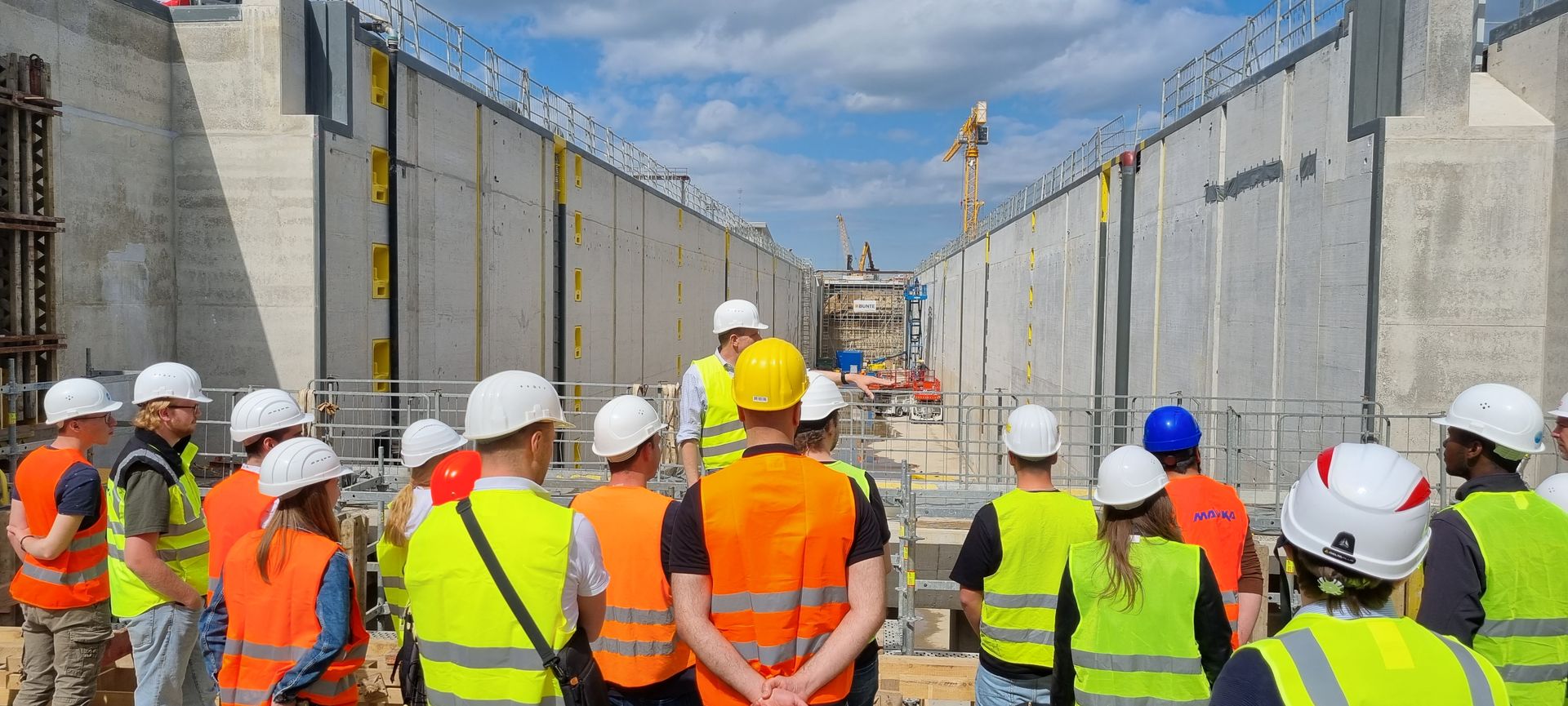Civil Engineering
- Fulltime
- Dual

Civil Engineering
Civil engineers shape the environment and contribute to the responsible use of resources through renovation instead of new construction, water protection or low-energy buildings. The classic tasks of civil engineers include the design, planning, construction, operation and maintenance of buildings.

What you can expect
You can expect a course in which you will combine engineering fundamentals with specialist knowledge of building physics, statics and geotechnics. The theory is underpinned by practical units in the laboratory and on the construction site. You will take soil samples and test the strength of alternative building materials. Sustainable construction is also addressed, as is the handling of existing buildings. You can study this very application-oriented course full-time or on a dual basis.
The design, planning, construction, operation and maintenance of buildings are among the classic disciplines of civil engineering. Nowadays, the topics of sustainability and refurbishment are also coming to the fore.

Your study content
You will combine engineering fundamentals with specialist knowledge of building physics, statics and geotechnics. The theory is underpinned by practical units in the laboratory and on the construction site. You will take soil samples and test the strength of alternative building materials. Sustainable construction is also discussed, as is the handling of existing buildings. You can study this very application-oriented course full-time or on a dual basis.
What will you learn?
Civil engineers work in many very different areas. This means that you will learn how to plan and calculate buildings, test various building materials in the laboratory or deal with construction process planning and the calculation of construction services. You don't just sit in the lecture hall, but are out and about in the field through practical exercises, laboratory work and company visits from the first semester onwards.
Your study program
What you need to bring along
- Language level C1 is required and the language of instruction is German.
- General or subject-specific higher education entrance qualification
- Alternatively: entrance qualification for universities of applied sciences or a qualification recognized as equivalent in the course of professional qualification
- Admission restricted, local numerus clausus!
Application process
The application phase for the approval-free Bachelor’s degree programmes for the coming winter semester begins on 01. May 2025 and ends on 15. September 2025. Applications can only be submitted online via our application portal.
If you have any questions, please contact the application support team.
What our students say
"Building old and new, planning for a healthy environment and sustainability. Putting what I've learned into practice straight away - that's what I love about my civil engineering course."
Lisa Humann, Bachelor student




